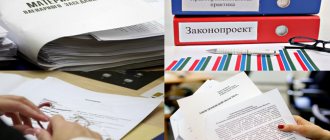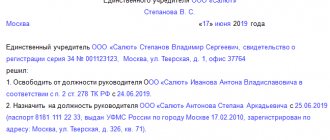Not everyone knows who makes federal laws in Russia. This is in the department of Parliament. The Russian parliament consists of the State Duma (lower house) and the Federation Council (upper house). However, it is not only these bodies that have legislative initiative. Representatives of the Cabinet of Ministers, as well as the President himself, may take the initiative to adopt a particular law. It is worth taking a closer look at how new laws are adopted in Russia.
You can read about what a municipal task is in our article - here.
Constitution: adoption of federal laws
The process of adoption of federal laws is provided for by the Constitution of the Russian Federation. Article 105 states that all laws are adopted after discussion by deputies of the State Duma of the Russian Federation. However, it is necessary for a majority of deputies to vote in favor of the bill for it to be adopted.
It is important that the bill meets all requirements. It should not contradict current laws, otherwise it will need to be revised. The Constitution obliges the bill to be submitted for consideration to the upper house of parliament after its approval by the lower house. Senators should also study its provisions and approve or return for revision.
Representatives of the Federation Council must consider bills that relate to the following issues:
- state budget;
- introduction of new taxes and fees or amendments to relevant laws;
- money issue;
- customs regulation issues;
- financial or monetary policy within or outside the country;
- ratification or denunciation of international treaties and agreements;
- war and peace, as well as the protection of the state border.
Extract from Article 108 of the Constitution of the Russian Federation
After members of the Federation Council consider the bill and vote for it, it is sent to the president for signing, as specified in Article 107 of the Code of the Russian Federation. Its text also indicates that the president can approve and sign the draft law. But if there are some controversial issues, it has the right to send it back for consideration to the lower house of parliament.
Other powers
The President resolves issues of Russian citizenship and the provision of political asylum to foreign citizens and stateless persons who have submitted a corresponding request to the country's authorities.
The President has the right, by his decrees, to pardon convicts, that is, to release them from further serving their sentences or to commute the sentence passed by the court.
The competence of the head of state also includes awarding orders and medals to Russian citizens, as well as conferring the highest military and highest special ranks.
Who has the legislative initiative?
The law allows you to put forward a legislative initiative:
- deputies of the State Duma of the Russian Federation individually or in a group;
- specialized committees of the State Duma of the Russian Federation;
- members of the Federation Council4
- President of the Russian Federation;
- relevant ministers.
Thus, citizens cannot put forward a legislative initiative. However, they can act through their deputy. The country is divided into electoral districts. Each deputy is assigned to a specific constituency. He must work with the population. To do this, he has several assistants and public reception rooms. Thus, any citizen can come and put forward his own legislative initiative. If it turns out to be very attractive and effective, then the deputy can put it forward for a vote. However, before this, it is necessary to transfer the idea to the relevant committee of the State Duma, so that its members can consider the effectiveness and novelty of the idea, assess the profit or damage to the federal budget, check for legitimacy and develop a mechanism of action.
Extract from Article 104 of the Code of the Russian Federation
That is, everyone can voice their thoughts about the new laws. But to adopt them, it is necessary to act through persons who have the right to legislative initiative. It is worth noting that each deputy is required to have a public reception area and assistants. He is also obliged to work with the orders of voters. If they are not met, then the likelihood of re-election for another term will decrease. Today, the electorate is becoming more and more literate, and therefore controls the activities of the people’s representatives.
The procedure for adopting a law - step-by-step instructions
The process of adopting federal laws is strictly regulated. It is specified in detail in the Constitution of the Russian Federation, so deputies are obliged to follow it. It is worth taking a closer look at how new laws are adopted in Russia.
Step 1
The one who has the right of legislative initiative puts forward a bill during the next meeting of deputies of the State Duma of the Russian Federation. Before that, he must work it out, justify it and check for legitimacy. For this purpose, the State Duma has a large staff of lawyers who check each bill.
The one who has the right of legislative initiative puts forward a bill during the next meeting of deputies of the State Duma of the Russian Federation
Step 2
Finalization of the law after the first reading. It is necessary to make corrections and take into account the comments of colleagues in the House of Parliament.
Finalization of the law after the first reading
Step 3
Second reading of the bill. If there are again comments, then the process must be repeated, and if there are no inaccuracies, the voting procedure takes place. It is necessary that the majority of deputies of the State Duma of the Russian Federation vote for the bill.
Second reading of the bill
Step 4
Transfer of the bill to members of the Federation Council within 5 days after its approval. The Chairman of the State Duma is responsible for this. Senators must also approve it. If there are any comments, it is sent for revision.
Transfer of the bill to members of the Federation Council within 5 days after its approval
Step 5
The bill adopted by the senators goes to the president, who must sign it no later than 14 days.
The bill adopted by the senators goes to the president, who must sign it no later than 14 days
Step 6
Publication of the bill, after which it will have legal force.
Publication of the bill
This is a standard process for passing legislation in Russia. It is worth noting that the president can also return the draft law to the State Duma for revision. Then the deputies will have to take into account the comments and again go through the above path.
Federal Law “On the procedure for publication and entry into force of federal constitutional laws, federal laws, acts of the chambers of the Federal Assembly”
Deadlines for the adoption of laws in Russia
The process of passing a bill can be quite lengthy. It is not specified by law. That is, one bill can be discussed for several years and constantly refined. Actually this is normal. Now there are several unadopted projects, to which deputies of the State Duma of the Russian Federation constantly return and again break off the adoption process for various reasons. However, if everything happens quickly enough and the deputies accept the project, then the timing of its adoption is regulated.
Extract from Federal Law-5 dated June 14, 1994
Table 1. Time frame for the adoption of laws in Russia
| Stage of adoption of the law | Duration (days) |
| Transfer to members of the Federation Council | 5 |
| Submission to the President for signature | 5 |
| Publication of the law after signing | 14 |
Thus, if everything is done quickly, then the project can be signed and made public within a month. However, it is worth understanding that the Federal Law does not always immediately gain legal force. If clear dates for its beginning (and sometimes end) of action are indicated, then it cannot act before this date, despite the signing by the president and publication in accordance with the requirements of the current legislation.
Legislative initiative of the President
The President of the Russian Federation has the right of veto. This means he can reject the bill he is given to sign. Thus, he is obliged to familiarize himself with it and make his suggestions or comments. After this, the project again goes to the State Duma deputies.
In practice, deputies accept all the president’s amendments and re-send the draft for consideration to members of the upper house, and then for signing. It is worth noting that such a cycle can continue indefinitely.
Thus, the veto serves as the final authority on the way to signing a document. If the president is not confident that a bill will be useful, he rejects it. However, this measure also serves as an opportunity to show attitude towards a specific initiative in order to maintain the president’s rating when taking unpopular measures. This has already been done several times during V.V.’s second presidential term. Putin.
The President signs the law
Overcoming the veto
The right of veto can be overcome if 2/3 of the deputies vote for the returned bill in the same wording. Then, bypassing the Federation Council, it again ends up on the president’s desk. He is obliged to sign it, despite having the right of veto.
If the project is fundamental and may have serious political or social consequences, then the president has two ways out of the situation to refuse to sign the bill:
- to retire;
- dissolve the State Duma and call new elections.
The text of Article 109 of the CRF indicates that the State Duma of the Russian Federation can be dissolved if there is no state of emergency or martial law in the country, and impeachment proceedings have not been initiated against the president. It is worth noting that the first year of work of deputies of the State Duma of the Russian Federation must be completed in full; they cannot be dissolved immediately.
Deputies of the State Duma of the Russian Federation vote for the law
This is when the Duma is dissolved:
- the candidacy of the Chairman of the Government was rejected by deputies three times;
- the candidacies of the Government of the Russian Federation do not suit the deputies;
- distrust of deputies of the State Duma of the Russian Federation (this issue should be considered by relevant structures in order to prove the ineffective work of deputies of the State Duma of the Russian Federation, which runs counter to the adopted state strategy).
The history of the Russian Federation has not seen the dissolution of the State Duma. Moreover, deputies of the State Duma of the Russian Federation have always accepted candidacies for members of the Government. The President resigns only once - December 31, 1999. It was Yeltsin, after whom Putin came. Let us note that Yeltsin called him his successor.
The Duma was dissolved only by Nicholas II during the Russian Empire. However, the result was disastrous. It is worth noting that the dissolution of deputies significantly increases the burden on the federal budget, since it is necessary to re-hold elections. Everyone understands this, therefore this measure is considered an extreme measure, which can be resorted to in exceptional circumstances.
What is collision collision
This is a legal term that suggests that one law is in conflict with another. This is the main problem in private international law, when the internal rules of different countries contradict generally accepted norms in international law. However, domestic law does not allow conflict of conflicts. To do this, each initiative must be checked for legitimacy and compliance with current regulations.
Today special committees deal with this. They are obliged to check that the bill does not contradict current regulations. If a conflict is discovered, then the deputy or other subject vested with the right to legislative initiative is obliged to carry out corrections and submit the draft for the second reading, taking into account the comments provided.
Deputies discuss the bill
Important! If the law comes out with contradictions to the current rules of law that have been adopted within the country (and this happens), then any citizen can file a lawsuit with the Constitutional Court demanding that the new legal act be checked for conflicts. Knowing that it contradicts certain laws, you need to indicate them in the claim. Representatives of the Constitutional Court are obliged to consider the claim and make a decision on it. This is the highest authority in Russia. That is, if we are talking about the internal legal acts of the country, then it is inappropriate to appeal to the Hague Court. His decision has no legal force within Russia.
Impeachment procedure (removal from office)
According to the Constitution, the President has immunity. However, if accused of treason or committing another serious crime, he can be forcibly removed from office by the Federation Council and also put on trial. The State Duma brings charges against a senior official (this requires a two-thirds vote of deputies), then it is considered by the Supreme and Constitutional courts. The final decision to remove the president from office is made by the Federation Council (at least two-thirds of the votes) within three months from the moment the accusation is brought.
Vertical of laws in Russia
There is a clear vertical of regulatory legal acts in Russia. This means that some have priority over others. If a lower law contradicts a higher one, then it has no legal force and cannot be enforced. Thus, the sanctions provided for its violation are considered illegal. Here is the vertical of regulations in force today:
- international ones have the highest legal force;
- federal ones should not violate the provisions of ratified international legal acts;
- regional acts follow the federal ones;
- local regulations apply within a particular locality.
It is worth noting that there are also Government Decrees and Resolutions. They are equivalent to federal laws. If the Constitutional Court issues a decision, it will also be valid throughout the country. The same applies to the Supreme Court and the Supreme Arbitration Court. However, the latter two can issue decisions, orders and send comments only to representatives of the judiciary. That is, their decisions will only apply to judges.
Adoption of a UN resolution
Courts and prosecutor's office
The head of state submits candidates to the Federation Council for appointment to the positions of judges of the Constitutional and Supreme Courts. He also has the right to directly appoint judges of other federal courts.
In the Russian prosecutor's office, the president's competence includes the appointment and dismissal of prosecutors of constituent entities of the Russian Federation, etc. In addition, the head of state submits to the Federation Council for approval candidates for the post of prosecutor general and his deputies.









